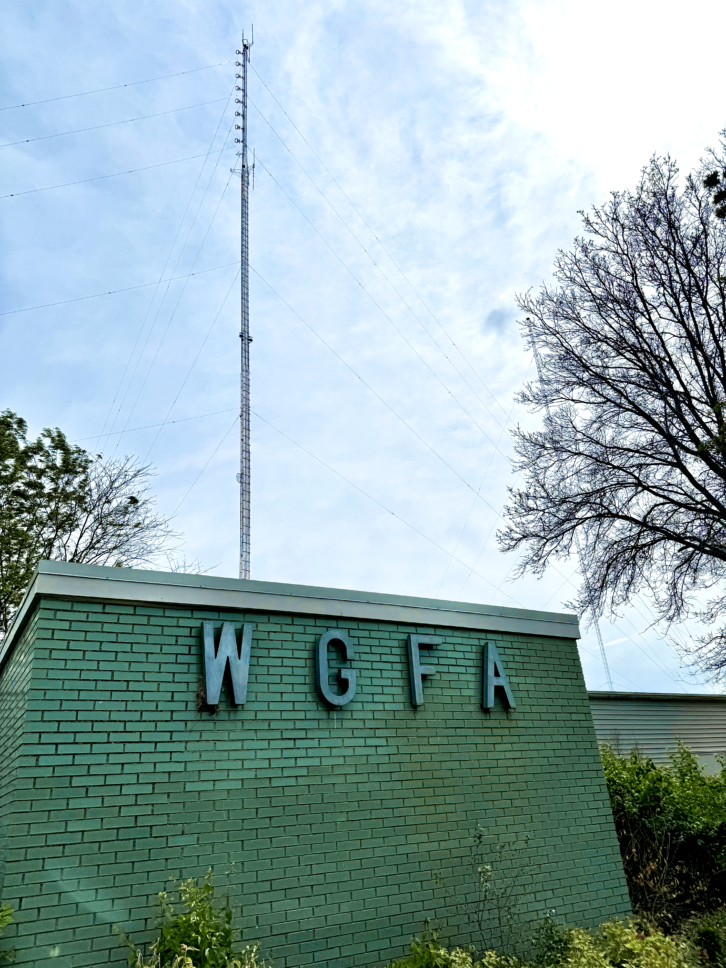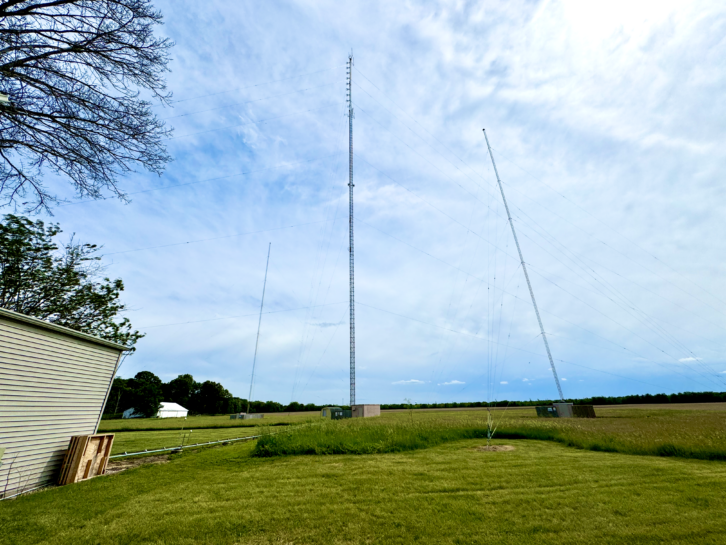This article is excerpted from the ebook “Awesome RF Buildouts.”
Here’s a project that was completed for Iroquois County Broadcasting Co.’s WGFA-FM, WIBK(AM) and translator W245CV, all three of which broadcast from a large plot adjacent to their city of license, Watseka, Ill.
“We changed ICBC’s AM translator parent station from WIBK(AM) to WGFA-FM HD2, then shut the AM down completely,” said Shaun Dolan, partner at integration firm Inrush Broadcast Services.
“This required coordination between the business office, legal firm and engineering team. The technical portion included installation of a new FM transmitter, supporting transmission infrastructure and environmental systems.”

The result is a modernized technical plant and terrestrial signals that align with contemporary audience preferences.
“The project represents a bold shedding of technical debt and enables ICBC to focus their ongoing investments on only the highest-return technology,” Dolan said.
ICBC originally began as one station, WGFA(AM), in 1961. WGFA-FM was added the following year as a simulcast.
The FCC’s AM revitalization initiatives, beginning in 2015, paved the way for ICBC to bring AM translator W245CV on the air in 2017. The translator and WGFA(AM) were branded collectively as WIBK, “The Buckle,” and adopted a new classic country format.

“While translators acquired via the revitalization window were required to rebroadcast the AM station specified in the application, this requirement expired after four years,” Dolan said.
When Inrush was brought on to handle technology needs for ICBC in 2023, the company’s Mike Dorris identified this expiration as an opportunity to realign ICBC’s terrestrial signals to their modern audience’s preferences.
Inrush began looking into the viability of a plan in three parts: Upgrade WGFA-FM’s transmission infrastructure to support HD Radio; obtain FCC approval to switch W245CV’s parent station from WIBK(AM) to WGFA-FM’s HD2; and shut down WIBK(AM).

During their initial evaluation of the stations, Inrush worked with veteran broadcast engineer and AM directional specialist Del Dayton to focus on the AM infrastructure. Dayton has a relationship with ICBC that spans decades; he supplied rich insight into both the historical and current state of the facility.
“This revealed that significant work would be required in the short and long-term to maintain WIBK(AM), adding up to significant expense with an unclear ROI,” Dolan said.
“General Manager Stacey Smith and her team, deeply embedded in the communities they serve, had already identified that the translator’s listener share far surpassed that of its parent AM station. The business and technical reasons led to serious discussions about the long-term viability of WIBK(AM), and ultimately Smith green-lit the project.”

David D. Oxenford of Wilkinson Barker Knauer provided legal consulting and handled FCC communications for this project, while Bruce Bellamy of Munn-Reese supplied Professional Engineering services. Installation Services Inc. was chosen for tower work. C&C Plumbing and Heating supplied environmental system design and installation.
The antennas for WGFA-FM and translator W245CV would remain on their 400-foot tower, which previously was also the center element of the three-tower WIBK(AM) directional array.
For transmission, Inrush worked with Nick vanHaaster at GatesAir to procure a FAX20 transmitter to serve as the new primary transmitter for WGFA-FM. The existing Broadcast Electronics FM-20T provides secondary service. A GatesAir HD-FMXi was installed to provide embedded Exporter and Importer functionality.

Gary Tibbot at Broadcasters General Store supplied most ancillary equipment. A new Dielectric 60K series switch and dual controller were incorporated to provide switching capability between the primary and secondary transmitter, while Myat transmission line, fittings, and hardware were used to connect it all.
For monitoring and control, an SNMP license was added to the existing Burk Arc Plus SL system, providing a simple integration to the new GatesAir transmitter.
Over four months, Inrush coordinated with the involved parties to execute the plan. All necessary equipment arrived onsite in January 2024 and the project was completed in February.

“This project serves as a great example of what can be achieved through trust and healthy communication between business and engineering teams,” Dolan said.
“For those of us in broadcast engineering roles, it is natural to sometimes think of our role as purely technical and to focus wholly on how do I fix this? This is obviously a critical skill set in our field, but it is equally important to zoom out and ask: What is the larger problem I’m trying to solve here? How might the outcome change if I approach this problem differently? Is this a problem worth solving?”



